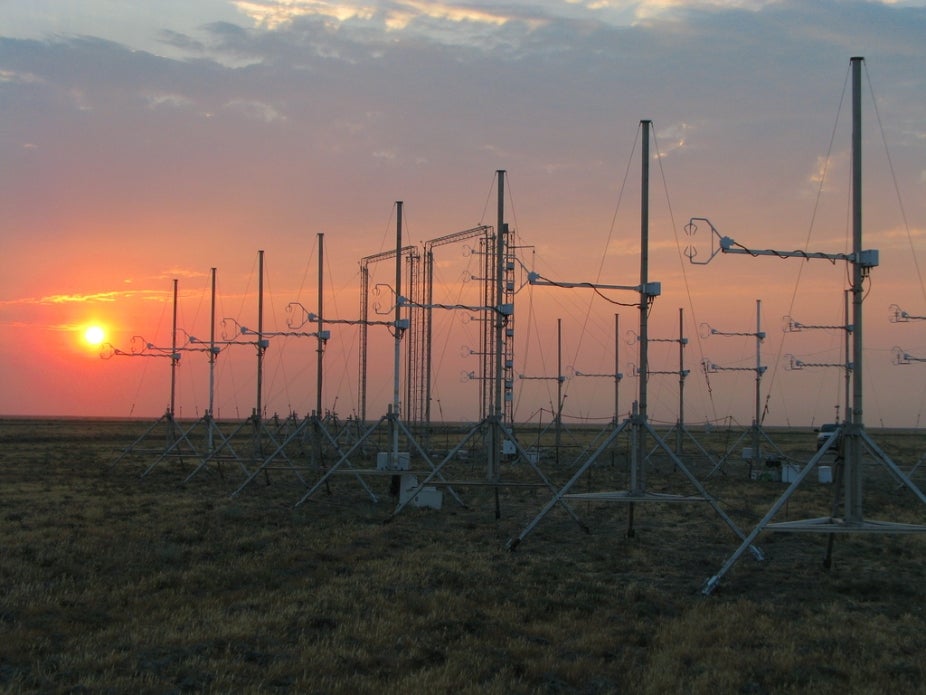Atmospheric Instrumentation and Measurements: Building the Foundation for Field Research
Have you ever wondered what kind of instruments are used to make measurements of the atmosphere? How do scientists measure atmospheric parameters such as pressure, trace gases or wind? In this Explorer Series Conversations event, we speak with scientists and educators who have created a series of ten meteorological instrumentation and measurement training lessons to build a foundation for field research.
These interactive, multimedia educational lessons focus on the science involved in measuring basic atmospheric parameters and can help with successful instrument siting and data collection for various efforts. They can also be used to enhance traditional instruction on topics such as instrument types, measurement techniques, site selection, and measurement uncertainty. While the course is geared towards early graduate students and upper-level undergraduates in the atmospheric and related sciences fields, the content is extensible to other disciplines where treatment of these topics is relevant. In total, the training lessons provide approximately 20 hours of atmospheric instrumentation and measurement training. Whether you’re a weather enthusiast, geoscience faculty member, or college student, join us for an engaging and interactive discussion to find out more about these lessons, how you can use them for free, and ask questions about being out on a scientific field research project.
The Instrumentation and Measurement of Atmospheric Parameters course was produced as part of a collaborative effort by the NSF NCAR Earth Observing Laboratory, Millersville University, and The COMET Program.
Teresa Campos
Teresa Campos is a Project Scientist in the Atmospheric Chemistry Observations and Modeling (ACOM) and Earth Observing Laboratory (EOL) at NSF NCAR. In this capacity, she supports gas phase in situ measurements of major carbon species (carbon monoxide, carbon dioxide and methane), nitrous oxide and water vapor in University-led experiments conducted on the National Science Foundation (NSF) airborne platforms. She received her PhD in Analytical Chemistry from Purdue University, with a research focus on modeling and developing a laser spectroscopic method for determination of aqueous plant pathogens. Thirty years ago, she wandered into the field of atmospheric chemistry by way of an NSF NCAR Advanced Studies Program Postdoctoral Fellowship where she developed a love of fieldwork and the application of modern chemical instrumentation to advance understanding of processes controlling Earth’s atmospheric composition.
Richard Clark
Richard D. Clark is the Chair of the Department of Earth Sciences and Professor of Meteorology at Millersville University of Pennsylvania where he has been for 32 years. His research interests span boundary layers and turbulence and air chemistry with a special emphasis on field observations using airborne and balloon-borne platforms. He also has a strong interest in solar physics and space weather and developed an academic minor in Heliophysics and Space Weather. Clark received his Ph.D. in atmospheric science from the University of Wyoming.
Clark is one of the principal investigators on the National Science Foundation (NSF)-funded project with NSF NCAR and COMET; Synergistic Environments in Graduate and Undergraduate Education (SEGUE) in Atmospheric Instrumentation and Measurement Training. In 2006, Clark was the recipient of the Russell L. DeSouza Award for Outstanding Contributions to the Unidata Community and the 2008 AMS Teaching Excellence Award. Clark served as a member of the American Meteorological Society Council from 2008- 2011 and completed two terms as a member of the Board of Trustees (2009-2015) of the University Corporation for Atmospheric Research (UCAR).
For more information about Clark, see his full bio here.
Alison Rockwell
Alison Rockwell is a project manager in the NSF NCAR Earth Observing Laboratory (EOL) with more than 25 years of science education program development experience. She has worked at several U.S. Federal agencies and organizations, including at NSF NCAR for the past eleven years. In her current position, Rockwell provides high-level project management support for EOL’s scientific and technical projects, including instrument developments, deployment of observational systems for field research, and the development of an amazing series of online instructional lessons on instrumentation and measurements of atmospheric parameters.
When Alison isn't bringing organization and consistency to accelerate performance in geoscience research and technology projects, she can be found running on the local trails, gazing through optics at avifauna, or taking her howling hound dog, Bernese Mountain Dog doppelganger, and handsome husband for their daily walk.
Amy Stevermer
Amy Stevermer is an associate scientist with UCAR’s COMET Program where she is involved in efforts to develop e-learning across multiple weather, water, climate, and natural hazards topics. Amy’s background combines experience in science communication and Earth system/environmental education with a grounding in the natural sciences. She holds an M.S. in atmospheric science with an integrated minor in oceanography and hydrology and has completed additional graduate coursework in technical communication and related topics. She is committed to expanding overall environmental and science literacy for audiences from local to global and appreciates the role of the MetEd website in providing vetted, high quality resources to learners worldwide. Along with others on the COMET team, she contributed instructional design expertise for the Instrumentation lessons and helped coordinate the course series development within COMET.
